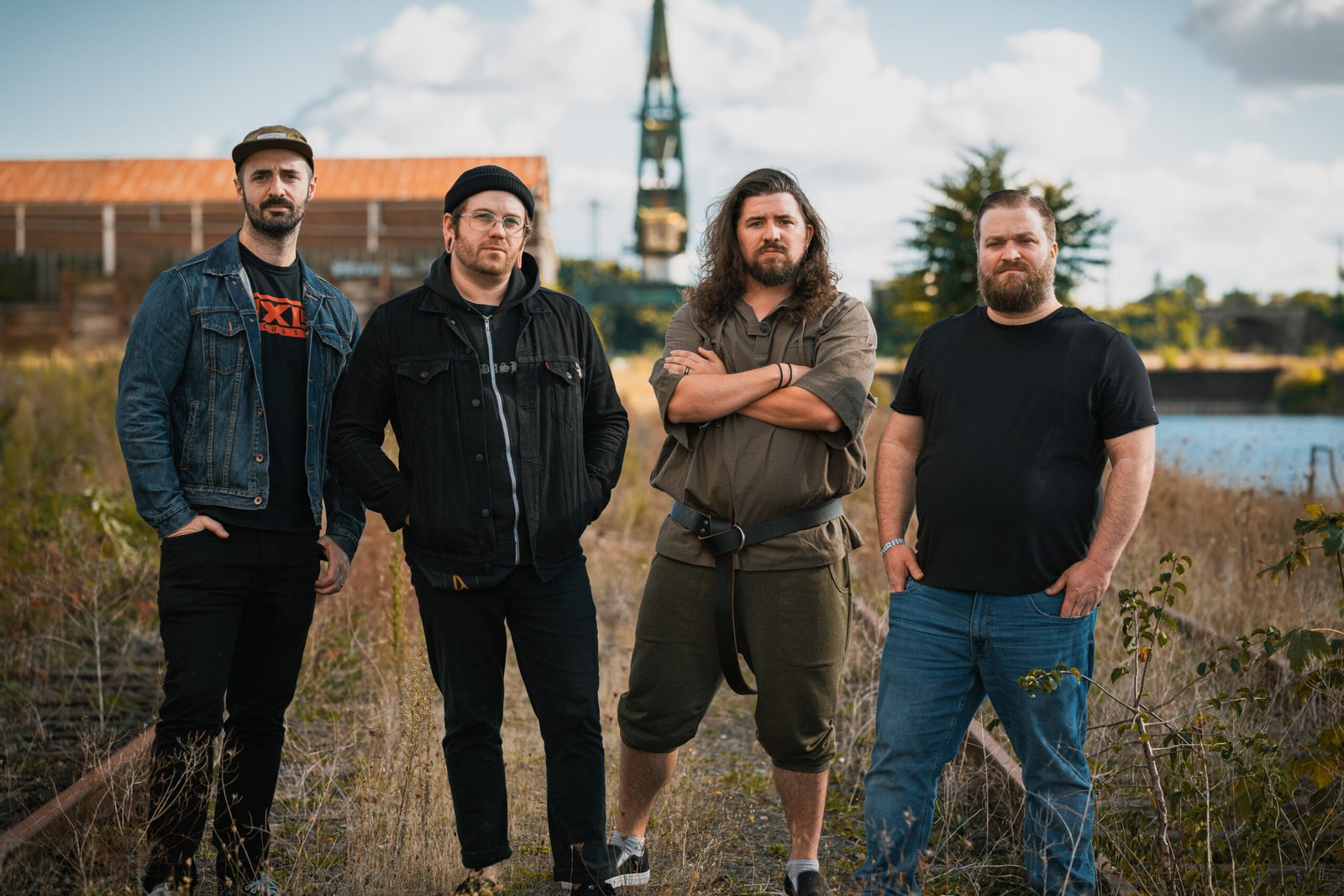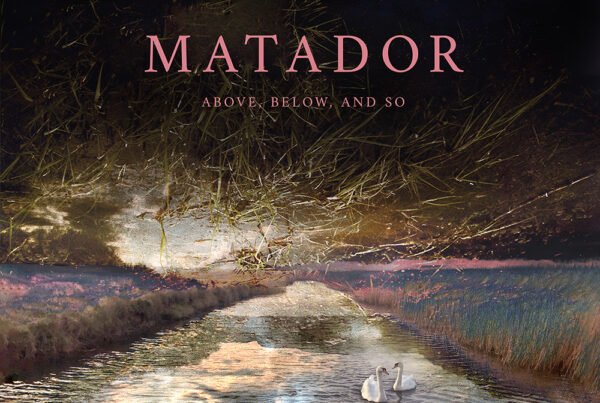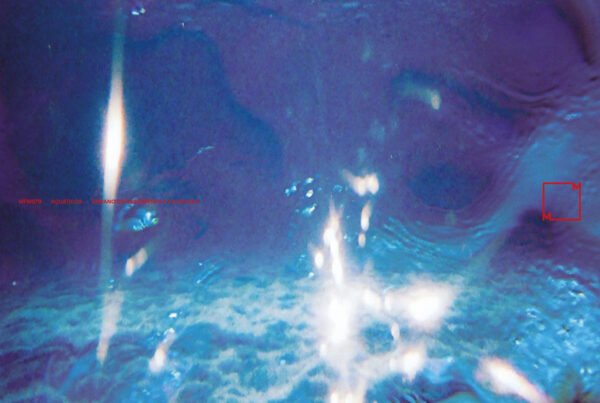With Alunea, Kardashev move beyond their self-described ‘deathgaze’, exploring rapid, technical progressive death metal moments alongside beautiful clean passages for their most dynamic record yet.
Release date: April 25, 2025 | Metal Blade Records | Instagram | Facebook | YouTube
Kardashev have always had an atmospheric approach to their intensely heavy sound, from the Fallujah-but-more-deathcore moments of 2015’s Peripety and 2017’s The Almanac. However, it was with 2020’s The Baring of Shadows that the group began to more fully embrace a self-described ‘deathgaze’ sound, pairing reverb-drenched guitars and operatic, emotional clean vocals with blackened blasts and death metal intensity. 2022’s stunning Liminal Rite continued in this fashion, with esoteric concepts built on massive, spacious, and dynamic arrangements. Now, with their most recent release Alunea, Kardashev find perhaps the most effective balance yet between these disparate components of their sound, exploring both their more gentle, beautiful influences and technical, metallic intensity for a dynamic auditory journey through eight tracks.
This evolution of their sound is intentional, as guitarist Nico Mirolla explains:
‘The Almanac and The Baring of Shadows were the beginning of our development into the ‘gaze’ side of deathgaze, as we were already pretty well known for the sonic similarities to death metal, but with Alunea, we’re coming closer to progressive death metal, with leanings in the ‘gaze’ only momentarily.’
Kardashev have connected a number of releases since their inception through an ongoing concept called the ‘The Kardashev Mythos’, and Alunea is a direct sequel to the story told on The Almanac, following that album’s protagonist meeting a character introduced on an earlier record.
These contrasting shades of light and dark are apparent from the album’s opener, moving through the ethereal vocals and atmospheric blackgaze of “A Precipice. A Door.” As the record progresses, the speed and intensity hinted at in the opening track explodes into Inferi-esque melodic and technical death metal (“Reunion”, “Truth to Form”). First single “Reunion” begins with clean guitars that almost evoke American Football‘s emotionality, and its hopeful opening chord progression is rapidly juxtaposed with brutal vocalizations and some of the most rapid and technical passages I have heard in Kardashev’s music. Vocalist Mark Garrett bridges these disparate instrumental passages with a voice that soars not unlike Leprous’s Einar Solberg, shrieks, and growls with a brutality that would not be out of place on many contemporary deathcore records.
“Speak Silence” layers various vocal melodies and soulful clean guitars that blossom into tremolo-picked leads before some chunky chugs and spirited low vocals evoke the early moments of Kardashev’s so-called ‘space deathcore’ roots and feature Erin Dawson (Genital Shame) bringing blackened shrieks into the mix.
But Kardashev expand beyond fast, technical passages, atmospheric blackgaze or beautiful post-rock moments. The dissonant chords and doom-meets-downtempo of “Edge of Forever” evolve into an aching, bass-led clean passage from Alex Rieth, while Pawel JJ Przybysz brings a duduk performance to Alunea’s penultimate track, “We Could Fold the Stars.”
Alunea is shorter than its predecessor, staying comparatively concise at 8 tracks despite song lengths ranging substantially. This concision keeps the record’s sonic range digestible instead of unfocused, covering a great deal of auditory territory without fatiguing the audience. The album’s impact is furthered by the smooth transitions and intentional ebbs and flows of Kardashev’s arrangements. The has also backed off on the spoken word sections that characterized some previous Kardashev releases, even though Garrett’s constructed language occasionally emerges, furthering the continuity of the band’s multi-album concept.
Alunea strikes me as Kardashev’s strongest, and most dynamic release thus far. I appreciate its forays into progressive death metal, broadening the band’s already ambitious scope, as well as its occasional homages to the band’s deathcore roots. With Alunea, Kardashev demonstrate a mastery of the dark and light in their instrumental and conceptual vision, and I am intrigued to hear where this evolution takes them in the future.






